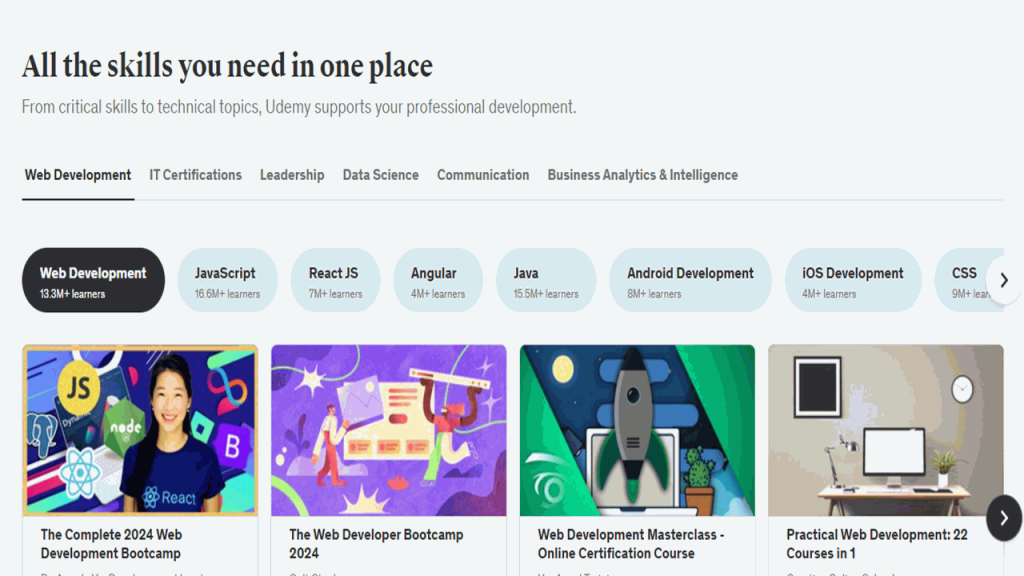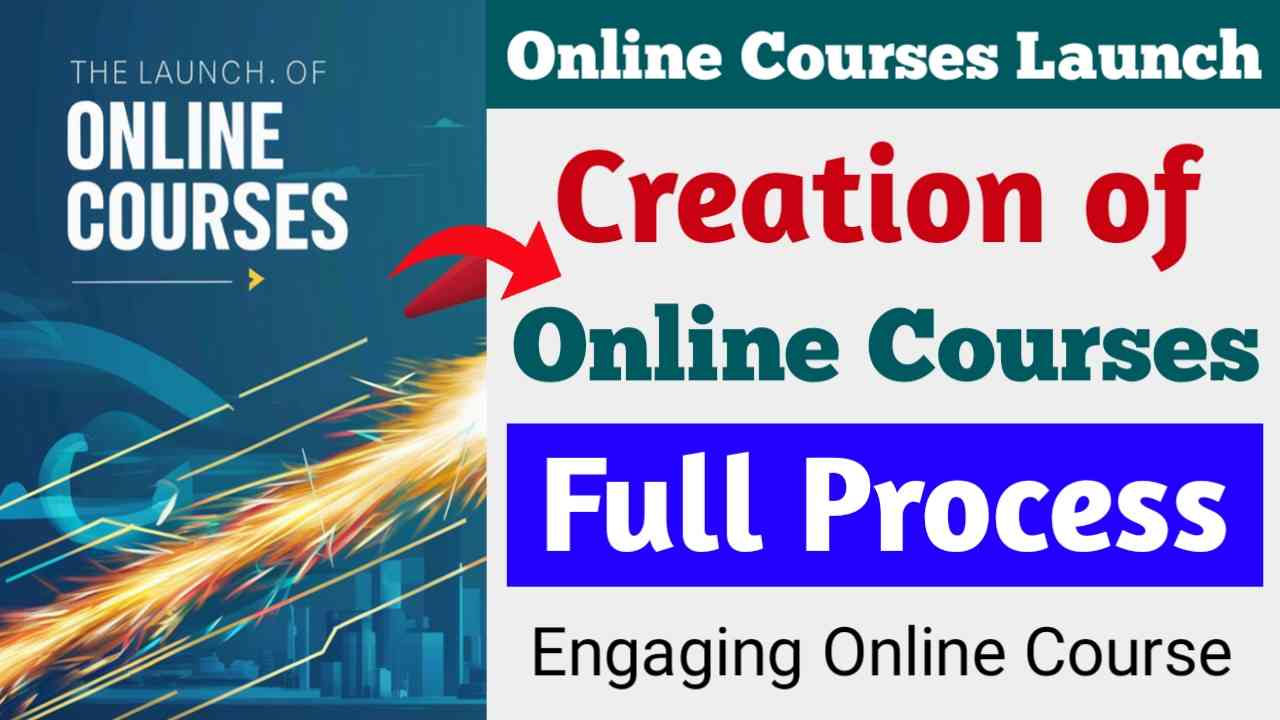Online Courses: Online learning has changed the way we learn. With the growing need for flexibility and accessibility of education, creating online courses is a profitable and powerful way for experts to share their knowledge and reach more people. In this article we’ll look at the many benefits of creating online courses in 2024 for both course creators and students.
The Best Passive Income Sources For US College Students
Best Online Courses – Learn Anything, On Your Schedule
Table of Contents
Points to Consider Before Launching Your Online Courses

1. Increased Accessibility
One of the biggest advantages of online courses is the accessibility. With the internet in their hands, learners can access courses anywhere, anytime, on any device. This is super useful for those with busy schedules, those living in remote areas or those who need specialized training. Online courses can bridge the gap between locations, making quality education more inclusive and accessible to more people.
2. Cost-Effective
Creating online courses is often cheaper than in-person training. No physical infrastructure, travel or accommodation means course creators can save big. That saving can be passed on to learners, making quality education more affordable and accessible. Plus online courses can be updated and revised more easily, no need for reprints or re-recording.
3. Scalability
Online courses can be scaled up or down as demand requires, so you can reach more people without big infrastructure or personnel costs. Scalability also means you can pivot to changing market trends and learner needs faster, so your courses stay relevant and effective.
4. Personalization
Online courses can be tailored to individual learners needs and learning styles, for a more personalized and effective learning experience. With interactive elements like quizzes, gamification and discussion forums, learners can engage more and interact with the course content in a way that suits them best.
5. Flexibility
Online courses give learners the flexibility to learn at their own pace, so they can speed up or slow down as needed. This is especially useful for learners who need extra support or need to review before moving on.
6. Broader Reach
Creating online courses allows course creators to reach a global audience, expand their impact and influence. With the ability to target specific niches or demographics, course creators can tailor their content to a wider audience, increase their visibility and credibility.
7. More Engagement
Courses can include interactive elements like video lectures, podcasts and live sessions to keep learners engaged and motivated. This will lead to higher completion rates, better learner satisfaction and a better learning experience.
8. Data Driven Insights
Courses give course creators valuable insights into learner behavior, engagement and progress. This can be used to refine the course content, identify areas to improve and optimise the learning experience for future learners.
9. More Money
Creating courses can be a profitable business, course creators can have an extra income stream. Courses can be sold directly to learners or through platforms like Udemy, Teachable or Skill share and course creators can monetize their expertise and reach more people.
10. Credibility
Creating online courses builds credibility for the course creator. Sharing their knowledge and delivering high quality education makes them a thought leader and expert in their field.
11. Carbon Footprint
Online courses means no travel which means less carbon emissions. This is in line with the growing trend of sustainability and helps towards a more environmentally friendly future.
12. Learner Retention
Online courses can include interactive elements and personalized learning paths to improve learner retention. Engage learners more and deliver a better learning experience and reduce learner drop out and improve overall learner satisfaction.
13. Collaboration
Online courses can facilitate collaboration between learners, course creators and industry experts. Discussion forums, live sessions and peer to peer learning can create a sense of community and provide learners with networking opportunities.
14. Accessibility for People with Disabilities
Online courses can be designed to be more accessible for people with disabilities and provide equal opportunities for learning and professional development. By including features like closed captions, audio descriptions and keyboard only navigation course creators can make their courses more inclusive and accessible to a wider audience.
15. Future Proofing
Creating online courses future proofs a course creators business as the demand for online learning grows. By adapting to changing market trends and learner needs course creators can keep their courses relevant and effective and have a sustainable source of income and professional development.
How to Create Engaging Online Courses
To create awesome online courses:
- Plan It All Out: Goals, Content, and Preferences:
- Set clear goals for your organization and learners.
- Research your learners to understand their preferences and needs.
- Structure your content around these insights.
- Make It Relevant and Visual:
- Make the content relevant to students and packed with info.
- Use pictures, videos and other multimedia to make it look good.
- Gamify:
- Add leaderboards, points and badges to make it fun and drive participation.
- Create Interactive Elements:
- Use quizzes, discussion boards and online chat to make it interactive and not isolating.
- Keep the Modules Short:
- Break content into smaller chunks to keep learners engaged and not overwhelmed.
- Use Video:
- Use video to make it more engaging but don’t overdo it. Professional video can be great but a simple video recorded on your phone can be effective too.
- Create a Learning Community:
- Include a space in the course where learners can discuss and share their thoughts, create a sense of community.
- Keep It Fresh:
- Make the content diverse and varied to avoid boredom. Use different formats like PDFs, presentations, videos and audio recordings to keep learners engaged.
- Tell a Story:
- Use stories and anecdotes to make it more relatable and memorable.
In summary online courses in 2024 are a win win for both course creators and students. More accessibility and cost effective, more engagement and scalability the benefits are obvious. By going online course creators can share their knowledge, reach more people and help create a more inclusive and sustainable world.








